Sudanese march in London, call for end of Darfur conflict
By Tom Law
April 27, 2013 (LONDON) – Around 500 Sudanese from the around the United Kingdom held a demonstration outside the Sudanese Embassy in London on Sunday calling for an end the conflicts in Darfur, South Kordofan and Blue Nile.
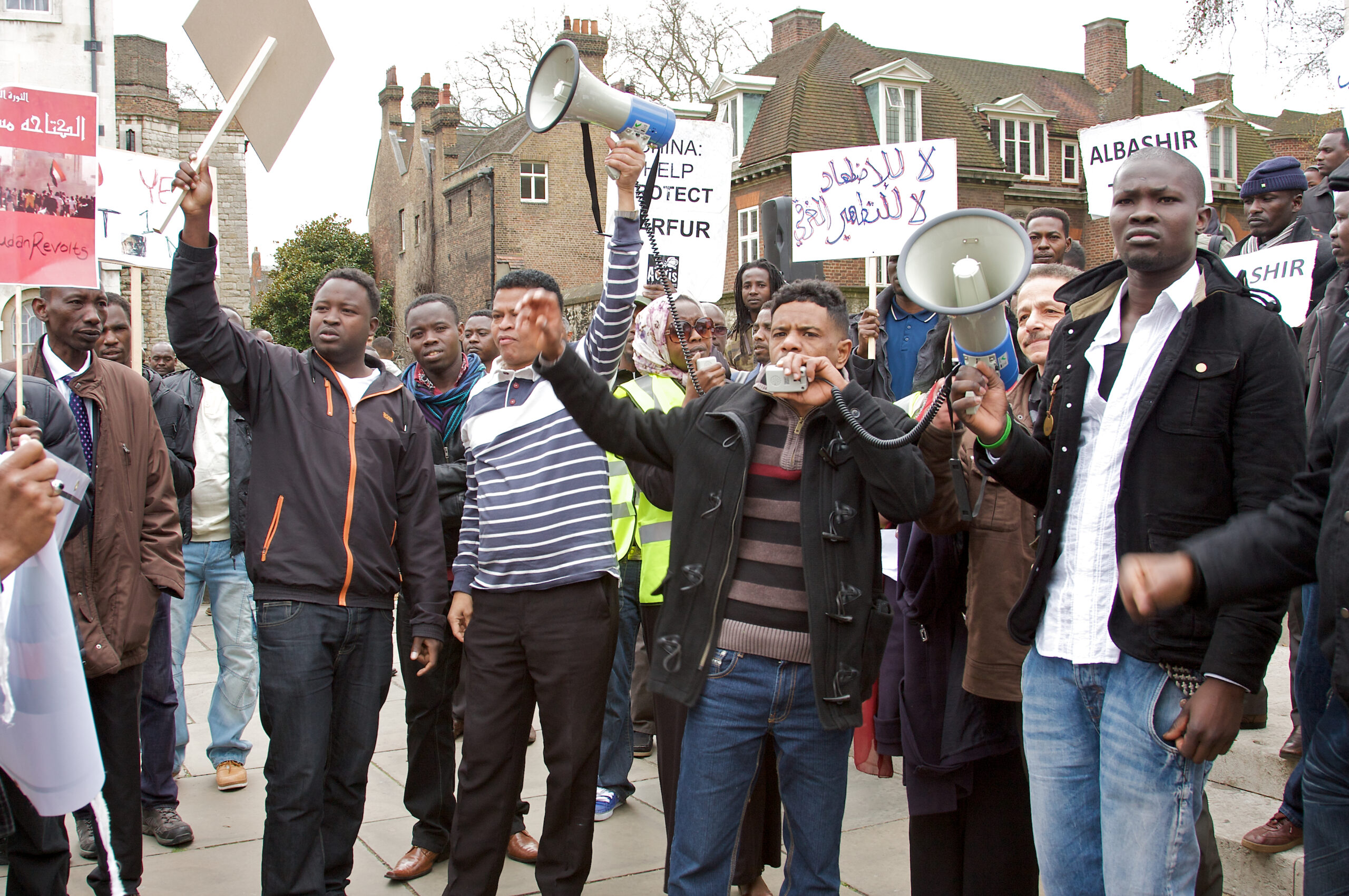
The protest was organised to mark the tenth anniversary of the conflict in Darfur, which the UN estimates has led to the death of 300,000 people and forced around two million from their homes.
At 2.30pm the protest moved to Downing Street, the office and residence of the British prime minister, where organisers submitted a petition which said: “Ten years ago, the Government of Sudan began a genocide in Darfur. A decade later, the suffering in Darfur is not over and neither should be the outcry and global efforts for peace, justice, and relief.”
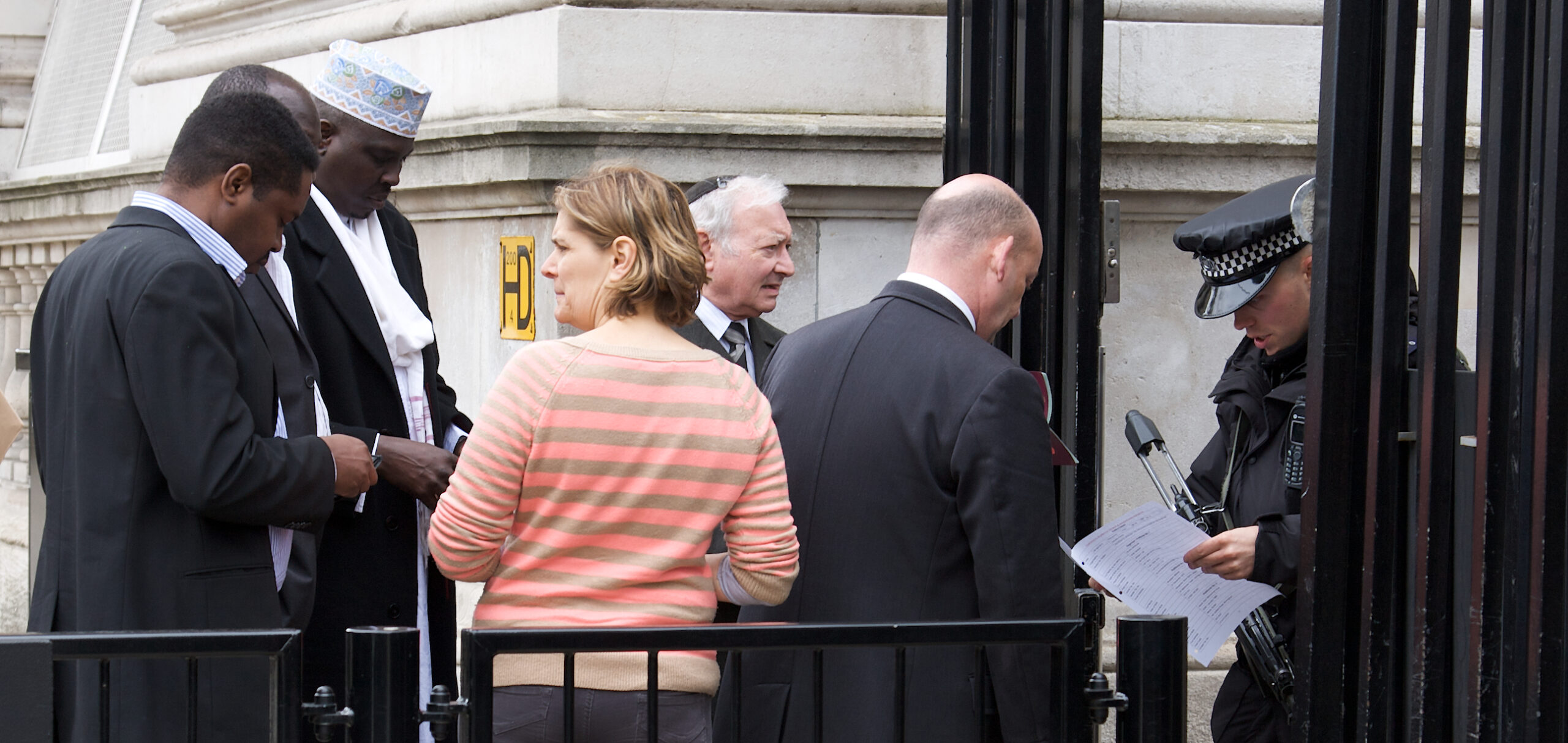
The petition has so far gained over 8,000 signatures and will be handed to the office of the Secretary-General of the United Nations, Ban Ki-moon as well as member states of the UN Security Council and the African Union in May. The petition says:
As concerned citizens of the world, we call on you to expend all resources at your disposal to bring an end to the suffering in Darfur and other areas under attack including Blue Nile and South Kordofan; urgently address the humanitarian crisis; bring those accountable for human rights crimes to justice; and protect the vulnerable to bring a just and lasting peace to Darfur and all of Sudan.
Throughout the day protestors chanted slogans, calling for Sudan’s president, Omar al-Bashir, to be tried at the International Criminal Court. In 2009 Bashir became the first sitting head of state to be indicted by the Hague-based court in for war crimes and crimes against humanity, with the charge of genocide added the following year.
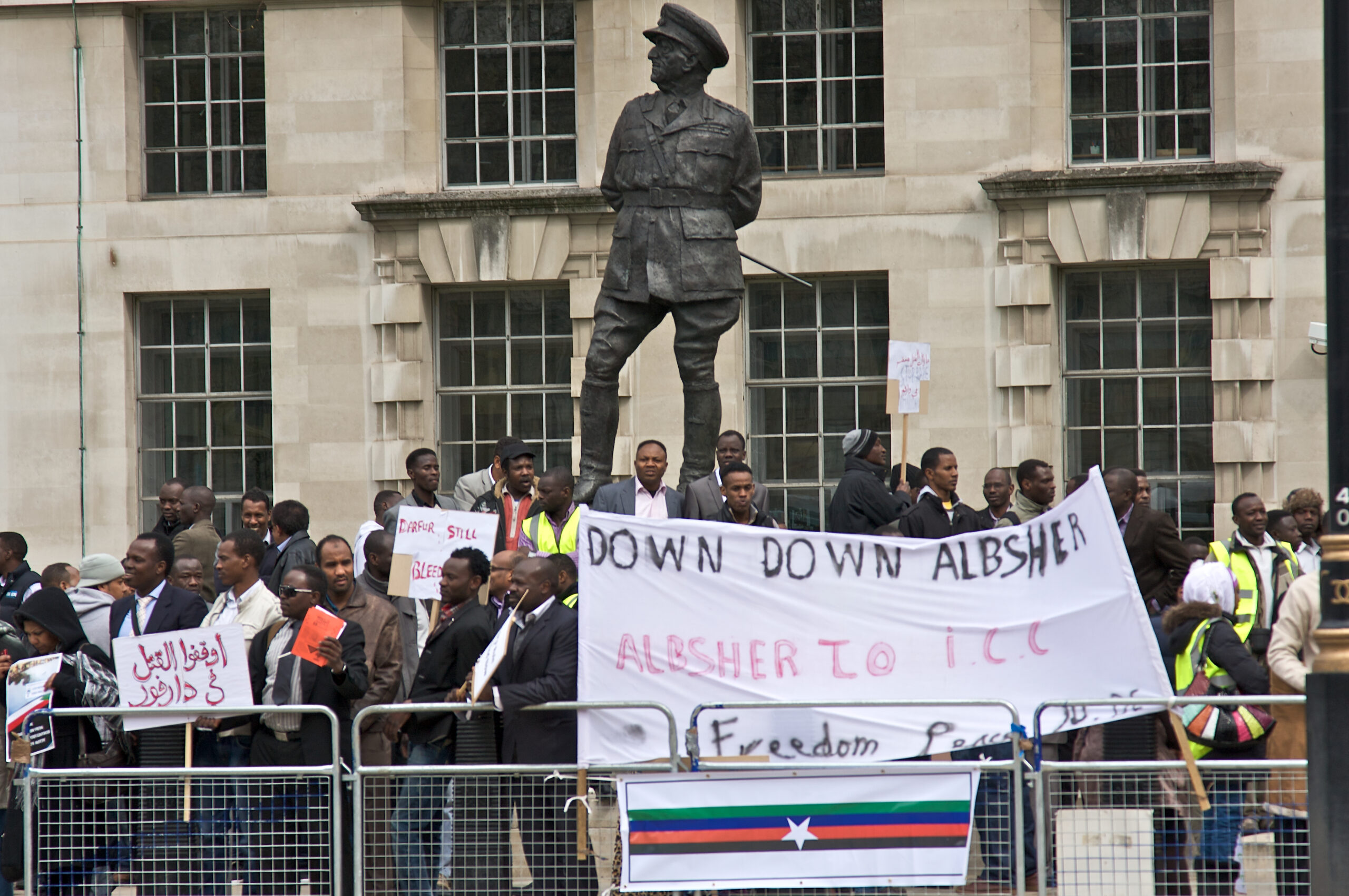
The Sudanese government says that its own justice system is capable of trying cases for crimes committed during the conflict and has refused to cooperate with the court. Khartoum claims that only around 10,000 people have died in conflict.
Sudan’s defence minister, Abdel-Rahim Mohamed Hussein, and the current Governor of South Kordofan state, Ahmed Haroun, as well as paramilitary leaders, have also been indicted by the ICC. However, the crowd’s chants called for First Vice President Ali Osman Taha, Sudan’s foreign minister Ali Karti and influential Presidential Adviser Nafie Ali Nafie – who have not been indicted – to also be tried at the international court.
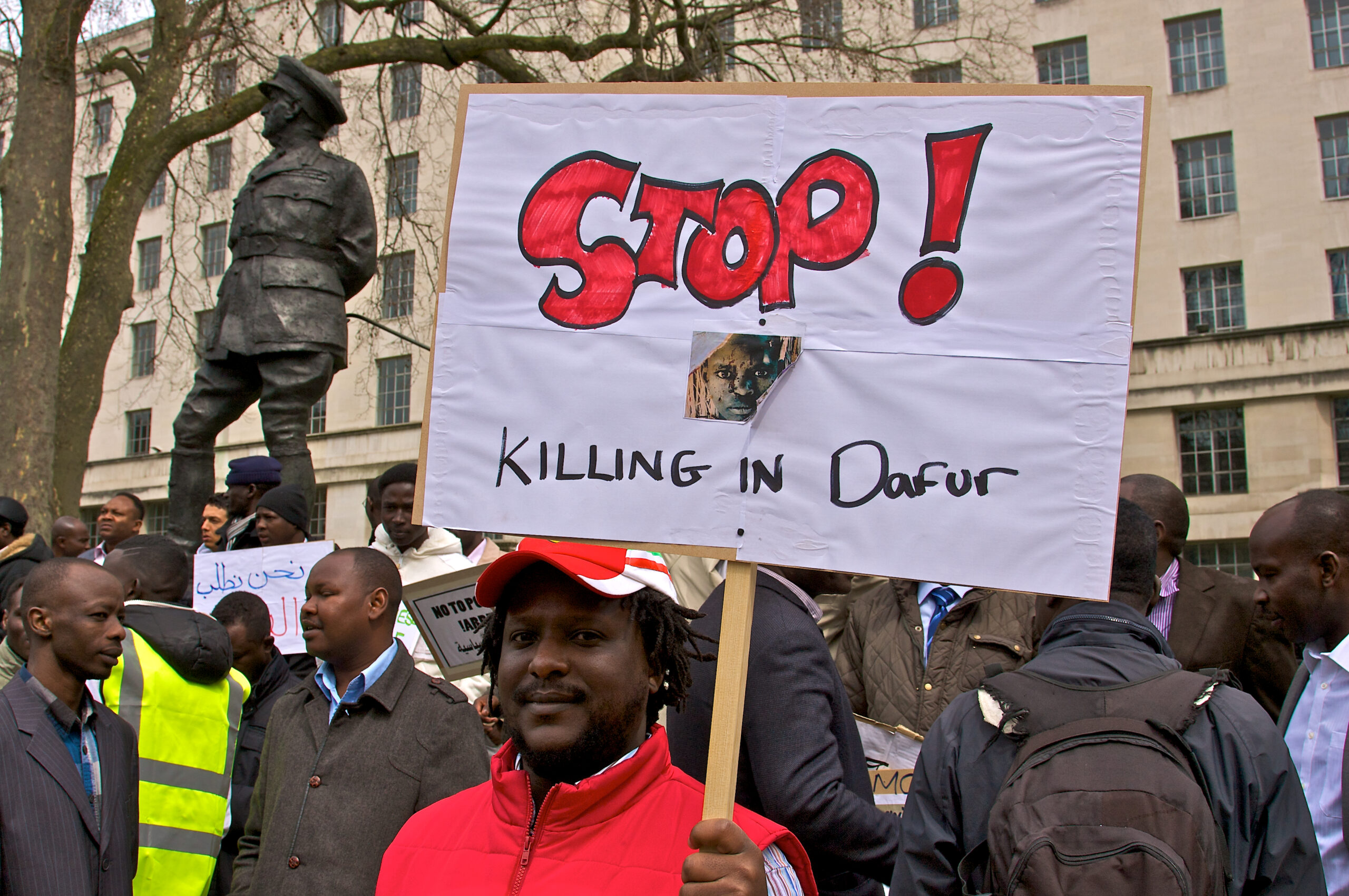
When the march concluded with a rally outside the House of Parliament speakers from across Sudan’s opposition addressed the crowd, calling for all those opposing the National Congress Party, which has ruled Sudan since 1989, to unite in order to bring about regime change.
Speakers also informed the crowd of the armed opposition’s recent military progress in North Kordofan, where the Sudan Revolutionary Front (SRF) attacked the town of Um Rawaba – just 100km from the state capital El Obeid – bringing the conflict far within 500km of Khartoum.
With the exception of the Justice and Equality Movement’s attack on the capital in 2008, the conflict had previously been limited to Darfur, South Kordofan and Blue Nile.
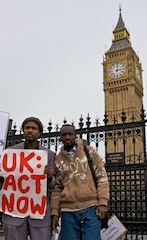 The rally was attended by representatives from the three main Darfur rebel groups and the SPLM-North – the armed groups which constitute the armed wing of the SRF alliance. Sudan’s political opposition was represented by the Sudanese Communist Party and members of the Beja Congress who have not followed the mainstream of the eastern-Sudan-based party in joining the NCP government.
The rally was attended by representatives from the three main Darfur rebel groups and the SPLM-North – the armed groups which constitute the armed wing of the SRF alliance. Sudan’s political opposition was represented by the Sudanese Communist Party and members of the Beja Congress who have not followed the mainstream of the eastern-Sudan-based party in joining the NCP government.
Sudan’s opposition has shown signs of increasingly cohesion in recent months with a “New Dawn” charter detailing common positions and goals signed in Kampala, Uganda, at the beginning of the year by most of country’s armed and non-armed political groups.
The leader of the National Umma Party, Sadiq al-Mahdi, has distanced himself from the coalition charter and this position was observed at the event with one placard calling on him not to consider any accommodation with NCP government.
However, the event was attended by some disaffected members of the Umma party who have joined the SRF in protest against what they see as al-Mahdi’s weak stance against the government and unwillingness to call for regime change.
Ahead of the demonstration an official from the Sudanese embassy dismissed the notion of civil society and opposition groups protesting outside Sudan, arguing that people in the Sudanese diaspora only attend such events to further their own political agendas.
In a series of speeches activists called on the international community to do more to end Sudan’s conflicts and end to the suffering of the Sudanese people.
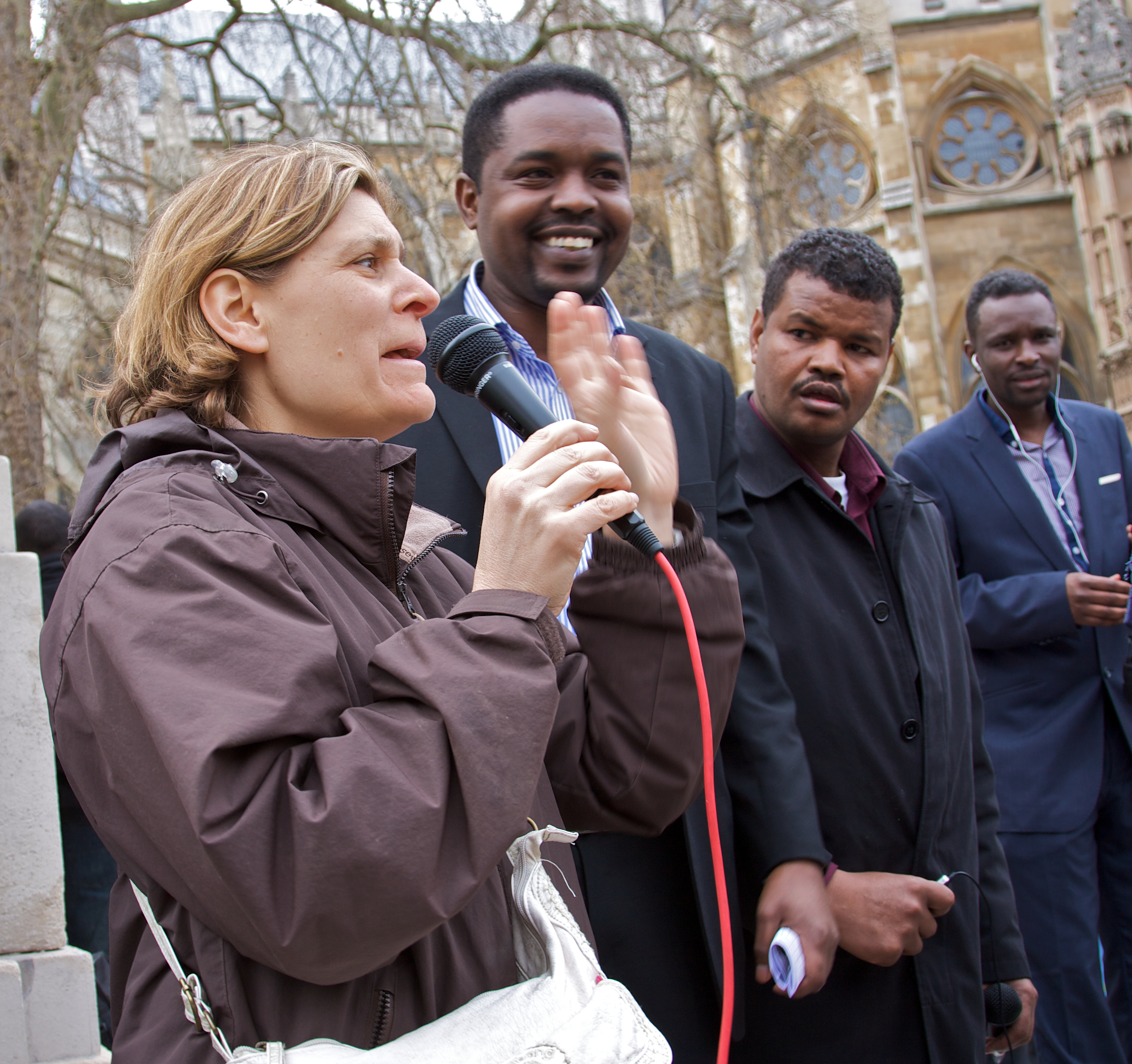
Sadig Kabilo, from the UK branch of the Sudanese Communist Party called on the United States, United Kingdom and the European Union to “stop playing cards with Khartoum regime” and to support the Sudanese people. He echoed calls from other speakers that the opposition needed to unite against the NCP.
He described the joint African Union-United Nations Mission in Darfur (UNAMID) – established to protect civilians in the troubled western region – as being a failure.
Olivia Warham, Director of Waging Peace, one of the co-organisers, said that it was important that the event was not just attended by activists from Darfur but included people from across Sudan.
The civil society groups who helped organise the demonstration included:
- Aegis Trust
- Beja Congress UK
- Darfur Union
- Darfur Victims Organisation for Rehabilitation and Relief (DVORR)
- Give Back
- HUDO
- Humanitarian Aid Relief Trust (HART)
- Nuba Mountains People Foundation
- Nuba Mountains Solidarity Abroad
- Nuba Now
- OBSCUK
- Voice of Nyala
- Waging Peace
(ST)
All photographs by Gordana Ilic for Sudan Tribune.
